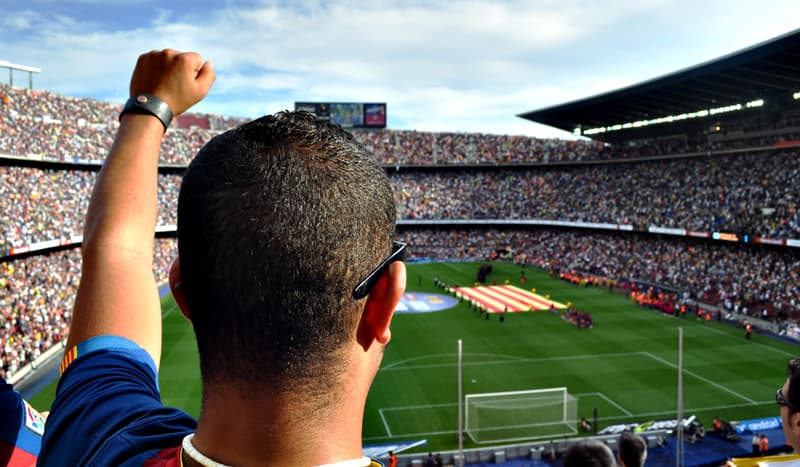Birmingham Citys Wealthy New Owner

If you're a Birmingham City supporter, then you can get a very quick overvioew of the history of the club as well as the developments of the past few years.
Away from the Champions League "elite" of the English Premier League, the main focus for clubs is to ensure their continued presence in the top flight of English football. Recent years have testified to the expertise of Wigan Athletic and Bolton Wanderers in this regard, and the takeover of Birmingham City will surely bolster their chances too.
Overseas Investors
There has been much discussion of the impact that wealthy overseas investors have made on the Premier League in the last few seasons, and Birmingham City have become the latest side to come under foreign ownership, with Hong Kong tycoon Carson Yeung recently assuming control of the football club. It is the merely the latest development in what has been a tumultuous few years for the midlands team, as they have bounced back and forth between the Premiership and the Championship.
History
Despite a lengthy continuous spell in the second tier between 1986 and 2002, Birmingham City have actually spent the majority of their existence in the top flight of English football. The Blues enjoyed their most successful spell in the middle of last century, achieving their highest ever league placing of sixth in the First Division in 1956, and overcoming bitter city rivals Aston Villa 3-1 to lift the 1963 League Cup. 2001 saw Birmingham City losing in agonising manner in the final of the same competition, as they were defeated on penalty kicks by Liverpool at Cardiff’s Millennium Stadium.
The roles were reversed a year later though, as the Blues beat Norwich in a spot-kick shoot-out at the same stadium to win promotion to the Premiership, and they remained there until relegation in 2006. Birmingham City have been promoted, relegated, and promoted again since, but manager Alex McLeish should now have Yeung’s cash to play with as he seeks to stave off another speedy return to the Championship.
Relegation
Relegation is a fate which has been thus far successfully avoided by Wigan Athletic since they won promotion in 2005 as Championship runners-up. In earning and maintaining a Premiership berth, the Latics have justified the investment poured into the club since 1995 by JJB Sports founder and former Blackburn Rovers player Dave Whelan.
When Whelan assumed the reins of power at Wigan Athletic the club were marooned in Division Three, having never risen any higher than that level in their 63 years of existence. But backed by the wealth of Whelan, the Northwest side were soon on the up, taking the Division Three title in 1997, moving from old ground Springfield Park to the new JJB Stadium in 1999 (since rechristened the DW Stadium), and winning promotion from Division Two in 2003.
Under boss Paul Jewell, Wigan Athletic finally broke into the Premier League, and even played for their first major trophy as they took on Manchester United in the 2006 League Cup Final – though they ultimately suffered a heavy 4-0 loss.
Bolton Wanderers suffered a similar hard luck story two years previously, when they too suffered a League Cup Final defeat, going down 2-1 to Middlesbrough. Recent seasons have been relatively successful for the Trotters though, with the club establishing themselves as a Premier League constant since former boss Sam Allardyce masterminded promotion in 2001. That was their third divisional elevation in six years, but whereas Bolton Wanderers’ previous two Premiership campaigns ended in immediate demotion, Allardyce was able to ensure his side survived in the top flight.
Former West Bromich Albion manager Gary Megson is now at the helm, but he has endured more difficult times, spending his first two seasons battling relegation.
You Might Like
Local And National Football In The UK
Find out more about football in the UK. From the Premiership and Championship through to the lower leagues and grass roots.City Breaks In Glasgow
Why not enjoy a bargain city break in Glasgow thanks to good value accommodation that's available through Expedia, Hotels.com or other providers.Kristiansand - A City Of Opportunities
Situated in Norway, Kristiansand is seen by many as a city of opportunities thanks to the extensive research and education facilities. But it's much much more than that.How to Gamble on Football
Find out how to gamble on football in our handy guideGreatest Underdogs In Football Tournaments
Read about the greatest underdogs in Football Tournaments ranging from the FA Cup through to the Euro championships.
Useful Websites
- JD Sportswear
Now a sports fashion retailer, they provide sports clothes for men, women and children. Owners of brands like Kukri, Cabrini and Kooga they cover rugby, football and of course outdoor fashion. - The Soccer Store
We are one of the UKs leading suppliers of football goals and football equipment supplying to clubs, schools and individuals. - Sports Leisurewear
Football team kits at cheap prices. With a range of football kits, sports gear and leisurewear look for all the brands now on our website. - Discount Football Kits
Discount Football Kits are the UK's leading supplier of Nike, Prostar, Adidas and Stanno football team kits at discount prices. Also football equipment, balls, goal posts, goalkeeper kit, tracksuits - Clubline Football
UK based football equipment supplier offers a full range of branded football team kits and training gear including Nike team strips, Mitre footballs and Prostar football wear. - Golf and other Sporting Holidays from Your Sporting Challenge
Offer holidays to golf and other sporting holidays throughout the World, including football, rugby, cricket and more. - Add Your Website Here